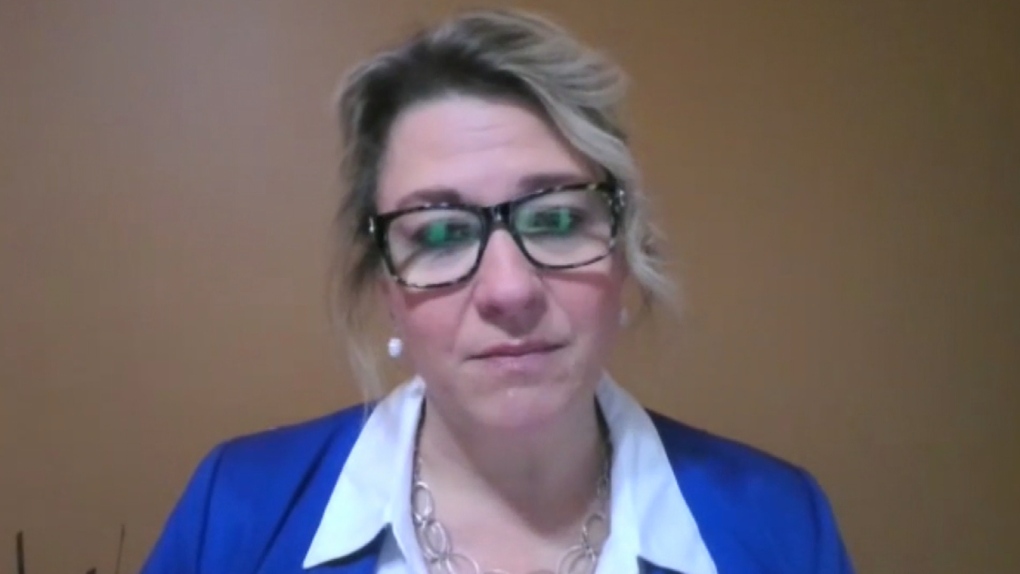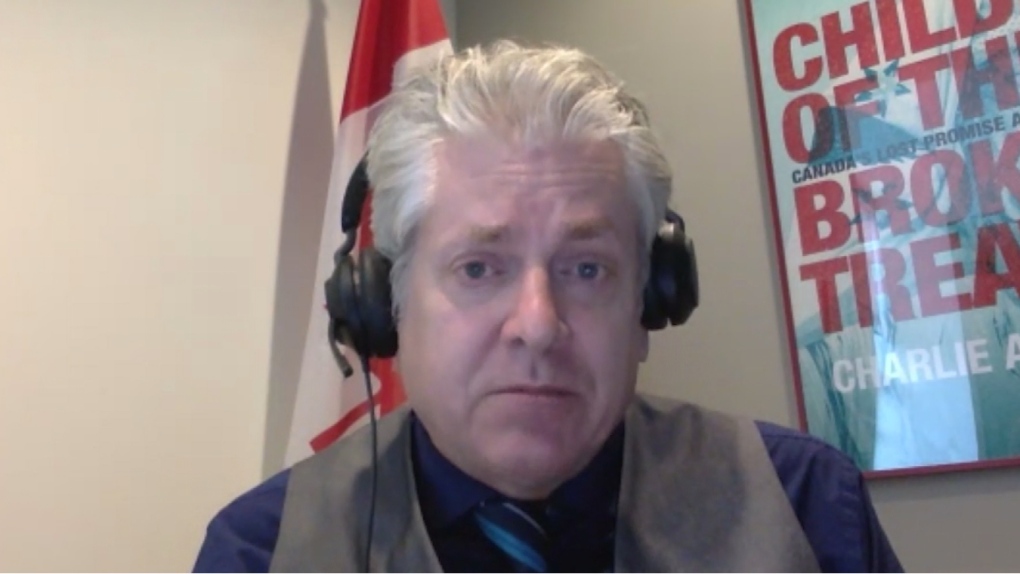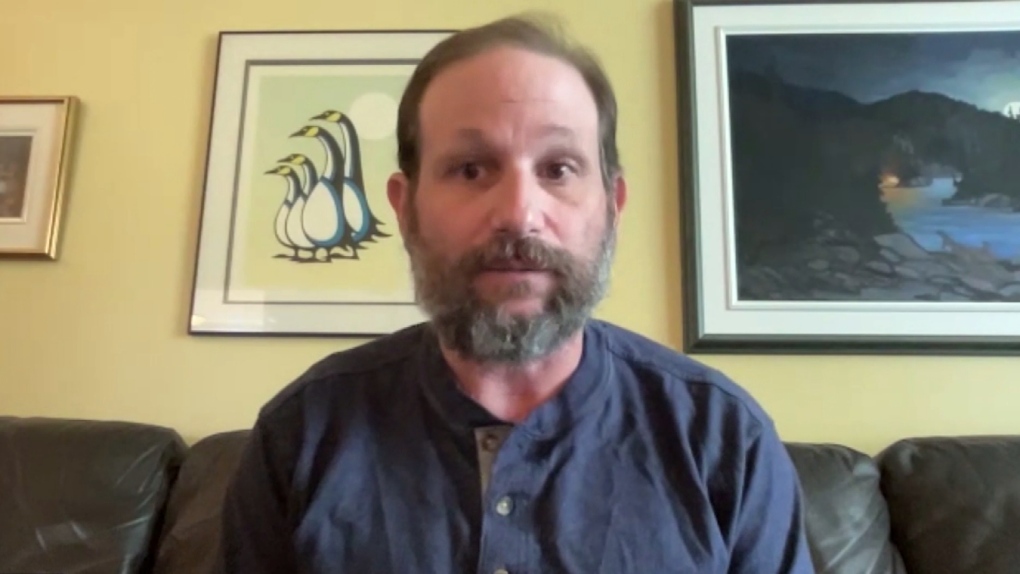Canadian politicians appear to be facing increased harassment, intimidation
Incidents of harassment and intimidation targeting politicians appears to be on the rise.
Last week, CTV News Northern Ontario reported about one Greater Sudbury city councillor who spoke out about the harassment she has endured since she was elected in October 2022. Since coming forward with her own experience Natalie Labbée said the response has been overwhelming.
 Greater Sudbury Ward 7 Coun. Natalie Labbée speaks with CTV News over Zoom about the reactions she has received after sharing her experience of harassment. May 27, 2024. (Lyndsay Aelick/CTV News Northern Ontario)“Actually I was, speaking with a mayor from another community, and she reached out to me and she commended me for, my courage in speaking up,” said Labbée.
Greater Sudbury Ward 7 Coun. Natalie Labbée speaks with CTV News over Zoom about the reactions she has received after sharing her experience of harassment. May 27, 2024. (Lyndsay Aelick/CTV News Northern Ontario)“Actually I was, speaking with a mayor from another community, and she reached out to me and she commended me for, my courage in speaking up,” said Labbée.
“She's actually, went through the court process as well and it was a successful case for her. She's never come forward and she said, you know, if you have the strength to do it, I think maybe it's time.”
Labbée told CTV News that she has endured hundreds of hateful and racist emails and the accused even went to her home causing her to fear for her safety.
“It's been escalating to the point where it's intruding in my personal life and there needs to be consequences to that,” she said.
“It has to stop and unless we speak up and be strong – it's not weak to come forward. It's actually strong and just to reiterate that, for myself, I've never wavered on thinking that I'm going to resign or step away like a lot of my colleagues across the province have already and will continue to do.”
Another northern example
Timmins-James Bay MP Charlie Angus has been in federal politics for over two decades and said he is unfortunately no stranger to harassment.
 Timmins-James Bay MP Charlie Angus has been in federal politics for over two decades talks with CTV News over Zoom about his experiences with harassment as an elected official. May 27, 2024. (Sergio Arangio/CTV News Northern Ontario)
Timmins-James Bay MP Charlie Angus has been in federal politics for over two decades talks with CTV News over Zoom about his experiences with harassment as an elected official. May 27, 2024. (Sergio Arangio/CTV News Northern Ontario)
“I’ve faced many, many threats over the last few years. I've had to go to court,” he said.
“I feel that someone who's been around and maybe as an older white guy, maybe I have a bit of power to just say, ‘Hey, this is toxic.’”
Angus said this kind of behaviour needs to be called out.
“A lot of people don't want to draw any more attention to themselves and what they are already getting,” he said.
Northern Ontario not unique
This spring the Federation of Quebec Municipalities published a report that said nearly 10 per cent of that province's 8,000 municipal politicians have quit since the last election in 2021 with psychological harassment listed as respondents’ top issue.
David Tabachnick is a professor of Political Science at Nipissing University in North Bay, Ont. and he said he feels populism is to blame.
“Populism suggests that we don't have the same kind of, let's say, respect for our political leaders as we once did,” said Tabachnick.
“We want them to be ciphers or representatives, totally of our own viewpoints.”
 David Tabachnick, a professor of Political Science at Nipissing University, talks with CTV News over Zoom about how the internet and more specifically social media have changed the level of respect the public has for elected officials. May 27, 2024. (Lyndsay Aelick/CTV News Northern Ontario)
David Tabachnick, a professor of Political Science at Nipissing University, talks with CTV News over Zoom about how the internet and more specifically social media have changed the level of respect the public has for elected officials. May 27, 2024. (Lyndsay Aelick/CTV News Northern Ontario)
Tabachnick told CTV News that access to information and misinformation plays a part in the change.
“The effects of the internet and social media more specifically, which fuels, I think, a lot of misinformation and at worst, conspiracy theories,” he said.
The professor said that he feels that in order to solve this problem politicians need to be more protected – a deeper solution is better civic education, which he said is lacking.
With files from CTVNorthernOntario.ca journalist Sergio Arangio
CTVNews.ca Top Stories

opinion Tom Mulcair: Prime Minister Justin Trudeau's train wreck of a final act
In his latest column for CTVNews.ca, former NDP leader and political analyst Tom Mulcair puts a spotlight on the 'spectacular failure' of Prime Minister Justin Trudeau's final act on the political stage.
B.C. mayor gets calls from across Canada about 'crazy' plan to recruit doctors
A British Columbia community's "out-of-the-box" plan to ease its family doctor shortage by hiring physicians as city employees is sparking interest from across Canada, says Colwood Mayor Doug Kobayashi.
'There’s no support': Domestic abuse survivor shares difficulties leaving her relationship
An Edmonton woman who tried to flee an abusive relationship ended up back where she started in part due to a lack of shelter space.
opinion King Charles' Christmas: Who's in and who's out this year?
Christmas 2024 is set to be a Christmas like no other for the Royal Family, says royal commentator Afua Hagan. King Charles III has initiated the most important and significant transformation of royal Christmas celebrations in decades.
Baseball Hall of Famer Rickey Henderson dead at 65, reports say
Rickey Henderson, a Baseball Hall of Famer and Major League Baseball’s all-time stolen bases leader, is dead at 65, according to multiple reports.
Arizona third-grader saves choking friend
An Arizona third-grader is being recognized by his local fire department after saving a friend from choking.
Germans mourn the 5 killed and 200 injured in the apparent attack on a Christmas market
Germans on Saturday mourned the victims of an apparent attack in which authorities say a doctor drove into a busy outdoor Christmas market, killing five people, injuring 200 others and shaking the public’s sense of security at what would otherwise be a time of joy.
Blake Lively accuses 'It Ends With Us' director Justin Baldoni of harassment and smear campaign
Blake Lively has accused her 'It Ends With Us' director and co-star Justin Baldoni of sexual harassment on the set of the movie and a subsequent effort to “destroy' her reputation in a legal complaint.
Oysters distributed in B.C., Alberta, Ontario recalled for norovirus contamination
The Canadian Food Inspection Agency has issued a recall due to possible norovirus contamination of certain oysters distributed in British Columbia, Alberta and Ontario.

































